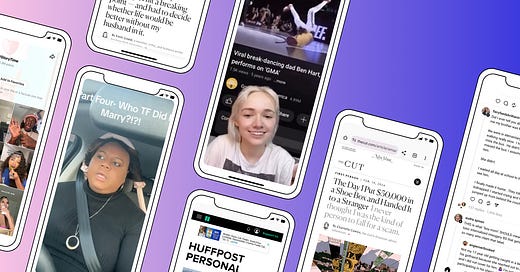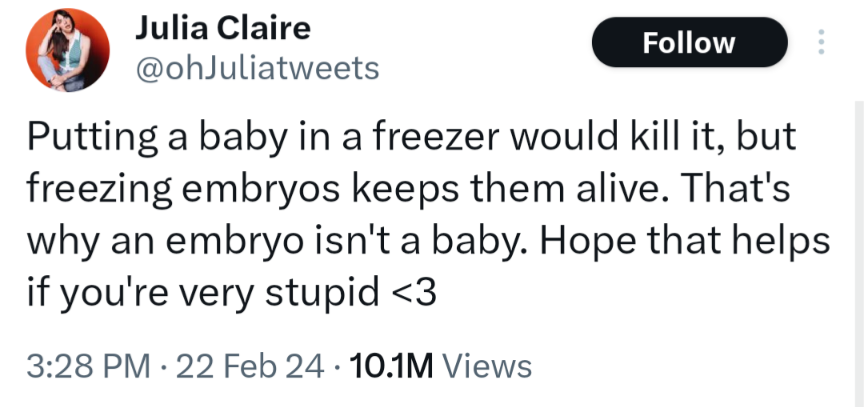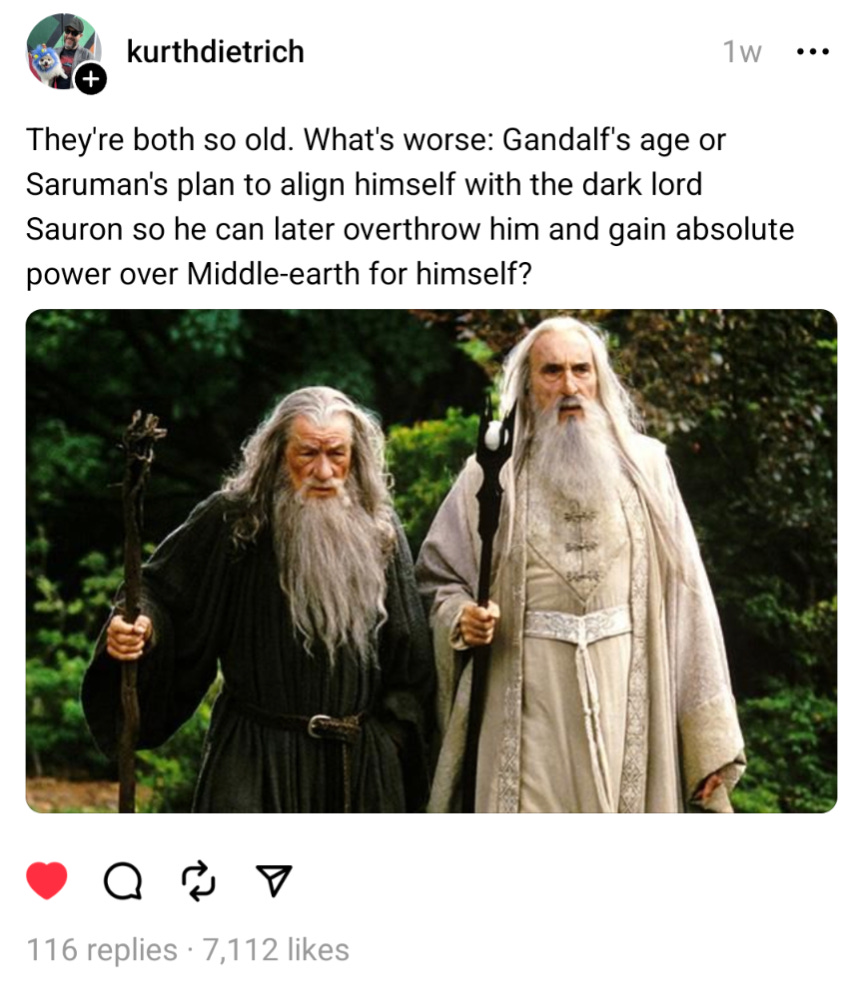Toxic friends, Temu victims and the outskirts of reality
Plus: The personal essay industrial complex is BACK, baby
The personal essay is BACK, baby … if it was ever truly gone. Reasonable people can disagree on that point. What is Instagram if not one lengthy personal narration?
I think we can all agree, however, that the original golden age of the personal essay spanned the first half of the 2010s. That era gave us Thought Catalog, xoJane, Buzzfeed Ideas … and then dissolved them in the corrosive sludge of visionless media management.
Lately, however, I feel as if I’m once again brushing into personal essays on every platform. They just come from different places, and often wear different skins, than they did before.
You won’t convince me, for instance, that “Who TF Did I Marry?” is not — like many TikTok “storytimes” — a personal essay. The wildly viral, 52-part TikTok epic recounts a disastrous five-month marriage with metaphor and dialogue and voice aplenty.
Likewise the “breakdancing dad” video that made the rounds last week, a triumph of short-form narrative pacing — I love how Madi Hart hooks you with the paradox of “funny trauma,” then toggles back and forth in time between her father’s career and the impact on her family.
I’ve also noticed a genre of mildly annoying but fast-replicating Threads posts I’ve dubbed “This Reminds Me Of.” (That’s often, thought not always, how they start.) A typical TRMO will repost someone else’s news or personal story as a pretext for sharing a longer, more random and typically more pointless personal story of their own, perhaps over the course of several posts, with little-to-no outside provocation.
Substack likewise brims with personal essays. (I have written a few.) And obviously, obviously!, this whole mental exercise kicked off after that Cut essay — make that Cut essays — launched a thousand memes a week ago.
Some people will argue — reasonably, again! — that TikTok videos and Threads posts are not “personal essays” in any classic, literary sense. That is true, but at the same time, all creative output now exists in a primordial digital soup called “content.” National magazines and email newsletters and random women in Atlanta vie equally for viewers’ overtaxed attention. Recent events show that personal stories perform well in this shifting space … who am *I* to play at literary pretension?
Incidentally, I suspect a close link between the collapse of traditional media and the essayistic renaissance, and not only because these forms compete for your attention. Personal narratives are a reaction to a fundamentally boring internet, to the pervasive sense that life online has grown both predictable and corporate.
Where are the Jezebels and the xoJanes now? Where’s the fun and the weird and the mess? Years of traffic-chasing and profit-scraping have consolidated the media industry, with resources increasingly concentrated in a handful of massive, traditional newsrooms that figured out how to play the game (Wordle) best.
“Social” media is not much better: We were once promised a reciprocal, networked community where each little node bleeped its joys and cares into a vast and exhilarating world. Instead, a class of professionalized “creators” beam their “content” to a passive audience in a one-way, advertising-supported broadcast that looks an awful lot like old-fashioned television. Commerce is tied up, inextricably, in the act of online creation.
These are not entirely original observations: I’m indebted to my very smart Media Friend Herman Wong, and also to the growing discourse around the “poetic web,” a movement of small, handcrafted websites and online communities that imagine other, quieter, weirder modes of digital existence. I love poetic web projects, though I sometimes feel I’m not the target audience: I didn’t go to art school and my taste in design and music are conventional, at best.
But the personal essay, in all its messy splendor — now there’s a glimpse of humanity that anyone can grasp. And at a time when the internet feels cold and algorithmic and hopelessly over-polished, maybe we need the personal essay industrialization complex.
P.S. For more on the rebirth of the personal essay, plz see this essay by
, which ends on the following perfect sentence: “My inner girlblogger knows that writing is posting is posturing a persona before a hall of two-way mirrors.”If you read anything else this weekend
“A Marketplace of Girl Influencers Managed by Moms and Stalked by Men,” by Jennifer Valentino-DeVries and Michael H. Keller for The New York Times. This should hit the child influencer debate with all the force of an atom bomb: Over the course of eight+ months, the Times uncovered a vast subculture of child dance and gymnastics accounts that mothers *knowingly* market to creeps and pedophiles. It’s an extraordinary investigation, involving some very clever journalistic uses of AI (which they use to identify relevant accounts) and a lot of old-fashioned gumshoe reporting (business records! police records! interviews with parents!).
But I was struck most by the grim, unblinking, nonjudgmental portrayal of how far some people will go for fame. Like — my primary takeaway, having read this twice, is a vague and unsettled horror at the depths of human depravity.
“Teen Subcultures Are Fading. Pity the Poor Kids,” by Mireille Silcoff for The New York Times. *Exceedingly* unusual for me to share two top links from the same publication, but I know y’all love a piece on internet aesthetics: This essay argues that such aesthetics — essentially, collections of visual cues with no larger lifestyle or history or social meaning attached to them — have supplanted traditional subcultures, which connoted shared experience. This does *feel* sad, if true, though I’m not sure it is. (Also: shout-out to my fellow former emo kids.)
“In The Age of ‘Toxicity’, Are We Walking Away from Friendships Too Quickly?,” by Elle Hunt for The Guardian. A much-needed antidote to the dominant online discourse around friends, which often seems to view them as replaceable widgets to be subbed in or out of your life at will in pursuit of ~self-optimization.~ I’d love to read more on the socio-technological causes of this phenomenon, especially where the rise of social networking is concerned … surely the codification/quantification of our friendships, and the performance of friendship for a diffuse audience, isn’t super conducive to meaningful connection.
“When A.I. Can Make a Movie, What Does “Video” Even Mean?” by Joshua Rothman for The New Yorker. In 10th grade, my history teacher asked the class to vote whether perception or reality was more important. (It’s possible I’ve referenced this before in this space — together with the science teacher who taught us to get ketchup from a bottle with centripetal force, it ranks among the highlights of my K-12 education.) ANYWAY: We all said, with the innocence and naivety of youth, that reality was of course more important … and our teacher gleefully told us we were wrong. I couldn’t stop thinking about that exchange while reading this essay, which considers OpenAI’s new text-to-video tool and the possibility that all recordings will one day represent ideas about reality, not reality as such. Much like my 15-year-old self, I think that would be a great loss.
“AI Companies Are Getting the Culture War They Deserve,” by John Herrman for New York. Are we gonna talk about “diverse Nazis”? I certainly was not planning to. But I really appreciated this sharp analysis, which points out that last week’s entire “woke AI” charade — wherein a Google image-generator produced Black Nazis, 19th-century Native American Senators, and other historical impossibilities — grew out of AI companies’ efforts to disguise the bias in their systems and our reality.
👉 ICYMI: The most-clicked link from last week’s newsletter was this very comprehensive take on Goodreads’ problems.
Postscripts
Temu victims. Drunkonyms. “Posting well is the best revenge.” “Marrying for money” absolutely does NOT offer “an alternate solution to hacking patriarchal capitalism.” Inside the company behind those fake Biden robocalls. Finding humanity in a Facebook wedding group. Regardless of whether this author’s husband is trashing her book on Goodreads … they have some pretty wild marital issues.
The rise of the Christian sex influencer. “Time can make easy fetishists of us all.” Amanda and Ashley are the new Karen. The election could depend on small-time influencers. A month of emails about pasta shapes. Noah Kahan and Nitish Pahwa on TikTok. Last but not least, the week in canine drama: old dog dethroned and Biden dog misconduct.
Until next week! Warmest virtual regards,
Caitlin






That LOTR tweet is my new favorite tweet. Hands down, no competition.
Really great current events newsletter.